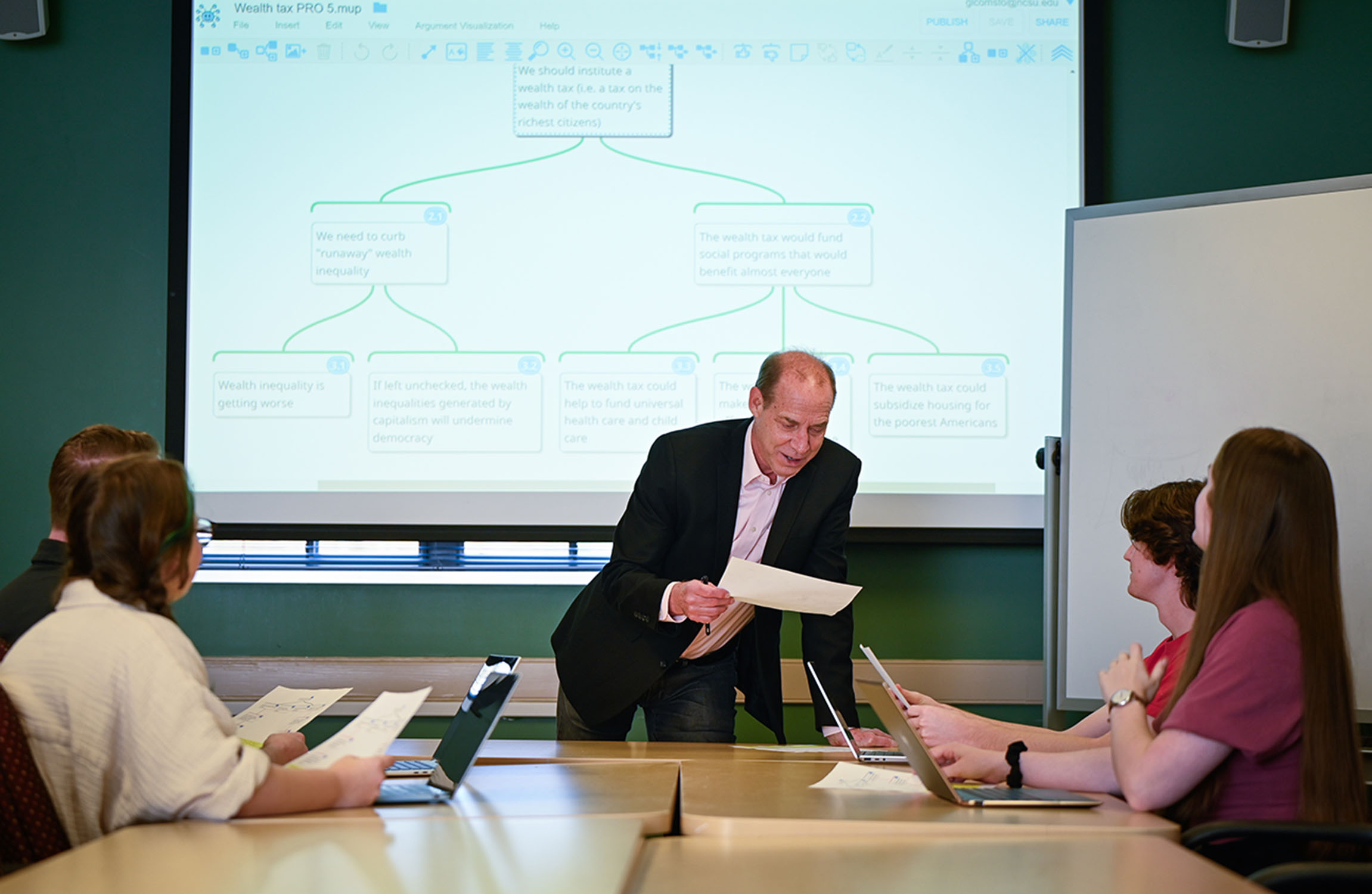Meet DELTA Faculty Fellow Carolyn Quarterman

2016-2017 Faculty Fellow Carolyn Quarterman considers herself a DELTA workshop junkie. Forming relationships with DELTA staff over the years, she has attended a number of workshops and received endless advice and instruction from the university’s online and distance education experts.
Past recipient of an IDEA Grant, now called a DELTA Grant, and current FLE 400 and FLE 401 instructor, Quarterman knows how critical enhanced technology is to improving a course. She has always been impressed by DELTA’s inaugural cohort of Faculty Fellows and their incredible work. Although she has used a great deal of the technology past Fellows have introduced, she never felt she had a project as noteworthy as they did. So where did the push to apply come from? Her boss, Dr. Jillian Haeseler, Director of English as a Second Language.
“My boss suggested I apply. I then had a consultation with DELTA where we talked about what all I had done in the past. We discussed what I had found even when technologies didn’t work and that I could always find a plan B,” she said.
Quarterman now carries this determination over to her colleagues, hoping as a DELTA Faculty Fellow, to shed light on new technologies and how they can be used for instruction. “As a Faculty Fellow, I would like to help people feel more comfortable using technology or guide those struggling with some aspect of it.” I think that seeing someone else use it can give you some ideas of how you might use it and the confidence to try it,” she added.
One way she has brought this plan to life is by assisting her fellow colleagues in an online Teaching English to Speakers Of Other Languages (TESOL) Certificate program. Half of the instructors are on campus and half are in other locations, such as Durham and Chapel Hill. Quarterman has led the effort to put all their instructional content in a consistent format in Moodle to prevent confusion among students as they take the different courses. Since not all her colleagues in the program are NC State faculty, DELTA workshops are not available to them. However, she has the knowledge gained through those events and created a template and screen capture tutorials to help the instructors use the same format in their courses and make the adjustments in Moodle.
What makes her so passionate about working with this technology? The helpfulness of new technologies when they align with classroom objectives. “With all of the new tools available and opportunities they provide, when they fit into your class objectives, they’re a huge help!” she explained. Mediasite has also been a highly used tool for Quarterman, which has allowed her to make short videos for her students and give related assignments. She is currently interested in using screen capture and digital audio recording tools to provide feedback and explanations to students. “There are always ways to improve your instruction and tools to help you attain what you want to attain,” she said.
Although it is difficult for Quarterman to pinpoint one teaching technology that is most effective, she has a couple top picks. “Learning management systems are essential as well as having a means of using synchronous and asynchronous digital tools,” she said.
One tool Quarterman found especially helpful with her online pronunciation class was the virtual classroom tool, Blackboard Collaborate. She used Collaborate for office hours—where students would have weekly practice sessions with her, working on various exercises and interactive practice tasks. This tool not only provided the opportunity for practice and immediate feedback, but helped form a feeling of community among the students. Not only could they meet ‘live’ in the room as a large group to interact and ask questions, but it was also possible to break them into pairs or smaller groups for practice or discussion. In the ‘breakout’ rooms, she found students started chatting with each other (as well as completing their task) and got to know each other better. In addition to Collaborate, Mediasite and Google Docs have also been invaluable, making sharing and accessing information much easier for herself and her students.
In terms of where teaching technology is heading, Quarterman applauds the efforts being made in virtual and augmented reality but would love to see more tools that provide feedback for oral exercises. Although voice recognition programs are improving and there some rather complex speech analysis tools that exist, she would love to see some digital tools that provide feedback on pronunciation – including rhythm and melody – in a way that is accessible to students. That may be far off, but that would be something she knows her students would really appreciate.


